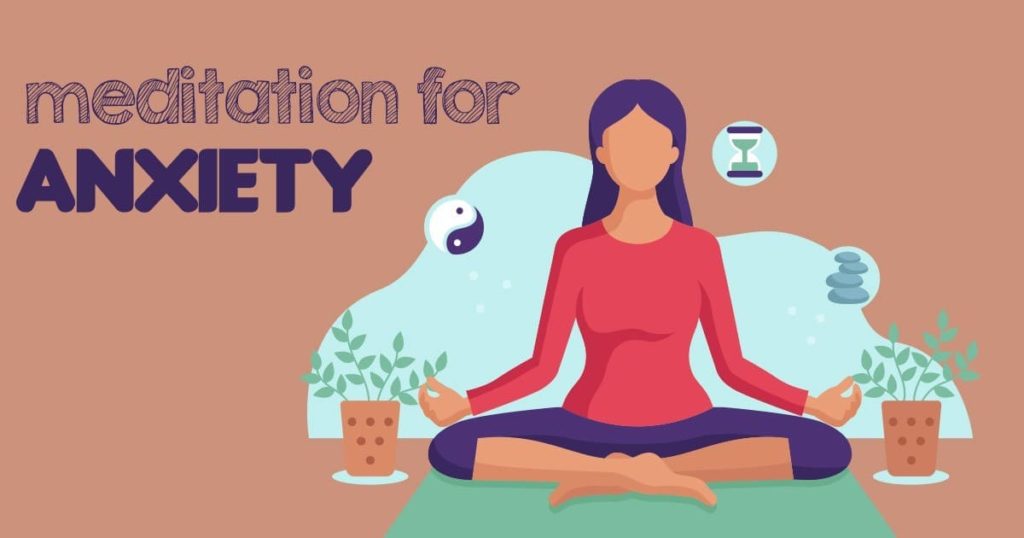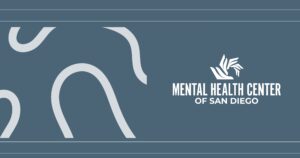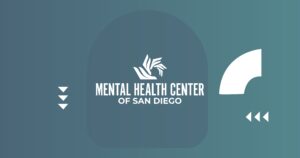While we often think about traditional treatments like medication and therapy, meditation for anxiety is an excellent option if you struggle with this mental health condition.
Meditation requires you to come back to the moment, which is beneficial for someone with feelings of anxiety.
Whether it’s having a daily guided morning meditation as part of your morning routine to start your day or just finding time at some point in your day to purge the anxious thoughts and focus on some positive energy, you might find a lot to love about it.
The Benefits of Meditation for Anxiety
Meditation for anxiety is highly effective and can help you clear your mind to get into a deep state of relaxation.
Many people find that when they meditate, it promotes calm physical sensations and a sense of balance.
You can eliminate the many thoughts that may be crowding your mind and contributing to anxiety.
Understanding Anxiety
What differentiates anxiety from normal worry that everyone experiences from time to time?
Anxiety is a normal stress response, but when does it become a problem?
An upcoming event might make you feel anxious, but if you have feelings of extreme, ongoing stress that impact your daily life, then it might be an anxiety disorder.
Having an anxiety disorder can be debilitating, and if you’re struggling with one you should contact a healthcare provider.
Different types of anxiety disorders include:
- Obsessive-compulsive disorder: OCD is a type of anxiety disorder with unwanted thoughts, which are obsessions and repetitive behaviors, which are compulsions.
- Generalized anxiety disorder: This condition is characterized by long-term, chronic worry about varying topics. The concern might be out-of-proportion to things that are happening.
- Panic disorder: Symptoms of this particular anxiety disorder include repeated, unexpected episodes (panic attack) of extreme fear, along with physical symptoms like shortness of breath or dizziness.
- Post-traumatic stress disorder: PTSD is an anxiety disorder that occurs after exposure to a traumatic or scary event such as a natural disaster, assault, or participation in military combat.
- Social anxiety disorder: Also called social phobia, this anxiety disorder causes extreme worry and a sense of self-consciousness in everyday social situations and interactions.
Researchers don’t know the exact cause of anxiety, but it’s probably a combination of environmental, genetic, and brain chemistry factors.
What Is Meditation?
Meditation is a practice where you follow techniques to improve your attention and sense of awareness.
Many scientifically proven benefits on different aspects of your physical, mental, and emotional health come from this practice.
There are two general types of meditation and many subtypes.
- Concentrative meditation: In this technique, you put all of your attention on a particular object, and then you tune out everything else. The object can be one word, your breath, or a mantra that you repeat.
- Mindfulness meditation: Is a technique that focuses on helping you learn to be present in the moment.
General benefits of meditation can include:
- Symptom management for conditions like anxiety, depression, high blood pressure, and sleep disorders
- More effective stress management skills
- Improvements in emotional well-being
- Better memory and attention
- Relief from chronic pain disorders such as migraines
How To Practice Meditation
Practice the following:
- Similar to yoga practice, focusing your attention is one of the essential components of meditation. This is what frees you from being distracted by things that cause you to worry or stress.
- When you’re meditating, you want to think about your breath; focus on slow, purposeful breathing where you’re filling your body with oxygen. You want to use your diaphragm muscle to expand your lungs.
- Practice in a quiet place free of distractions and make yourself comfortable.
- When you begin to practice meditation for anxiety, don’t worry about doing it the “right” way. You have to develop a routine that works for you.
- Along with deep breathing, one technique that’s easy to use as you get started is scanning your body. You become more aware of how each part of your body feels and the sensations you’re experiencing at that moment.
- Using a mantra is an excellent way to keep you focused.
- Another great way if you’re just getting started is to do guided meditations. You can find these audio meditations online, and they’ll help you stay focused as you learn the basics of what it feels like to meditate.
Making Mindfulness a Habit
As you grow your meditation practice, you can also start to make mindfulness a daily habit in all areas of your life.
This concept shares similarities with cognitive-behavioral therapy.
Much of our behavior is on autopilot because there are neural networks that program us to follow habits.
Mindfulness can help you overcome these default behaviors you might be engaged in.
That does take practice to be intentional.
Every time you’re doing something with intention, you’re activating your brain’s grey matter and rewiring your neural pathways.
If you were going to react with anxiety to a specific situation, you could become aware of that trigger by practicing mindfulness, and you could work to change your response.
Developing Your Skills
With practice meditation can become deeply personal; so when using meditation for anxiety, don’t be too hard on yourself or think you’re doing it wrong.
Try to schedule time for meditation as you would with anything else that’s important to include in your daily routine.
It may take you time to experiment and find how to make your practice work best for you.
Still, once you find what does suit your needs, then you’re likely to see significant benefits of meditation for anxiety and your general emotional well-being.




















